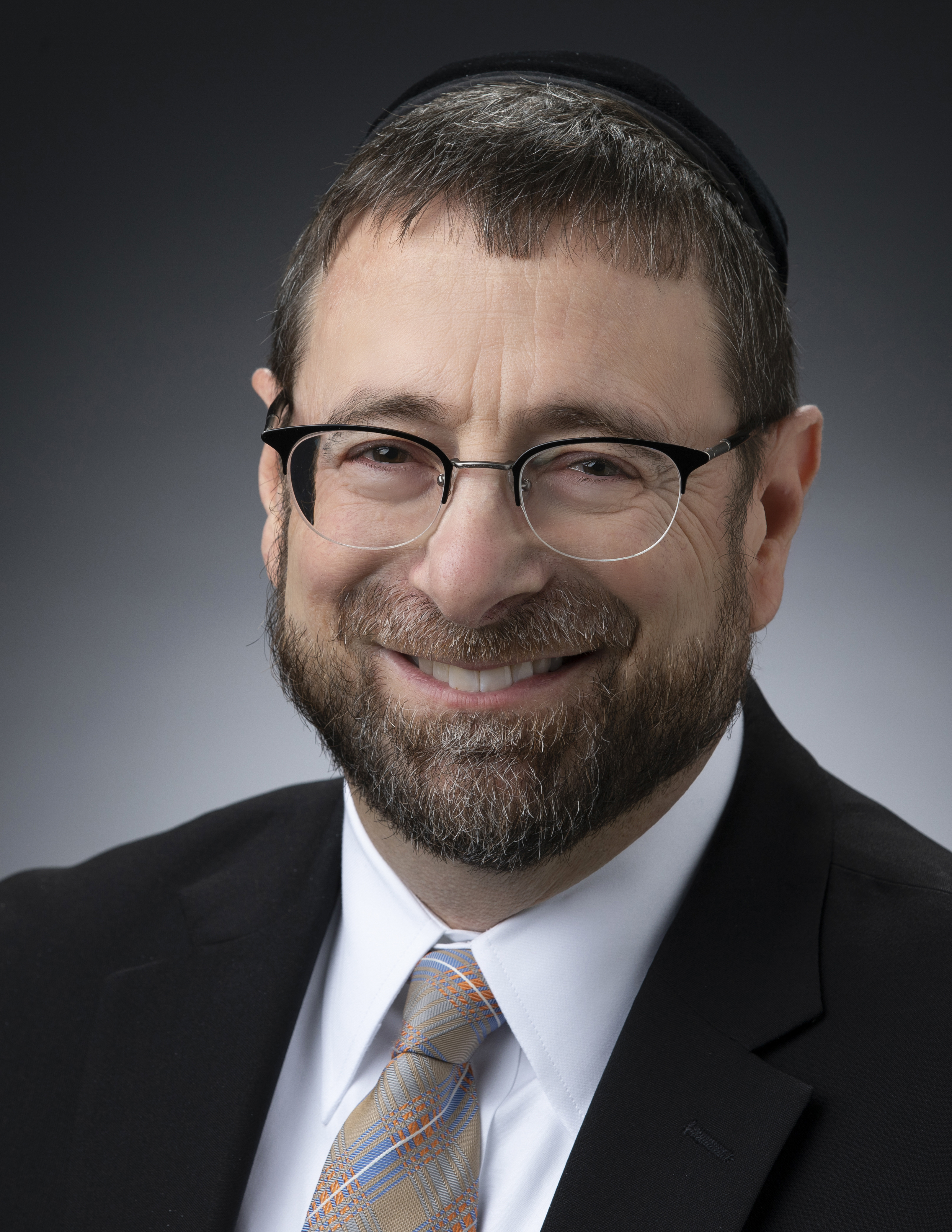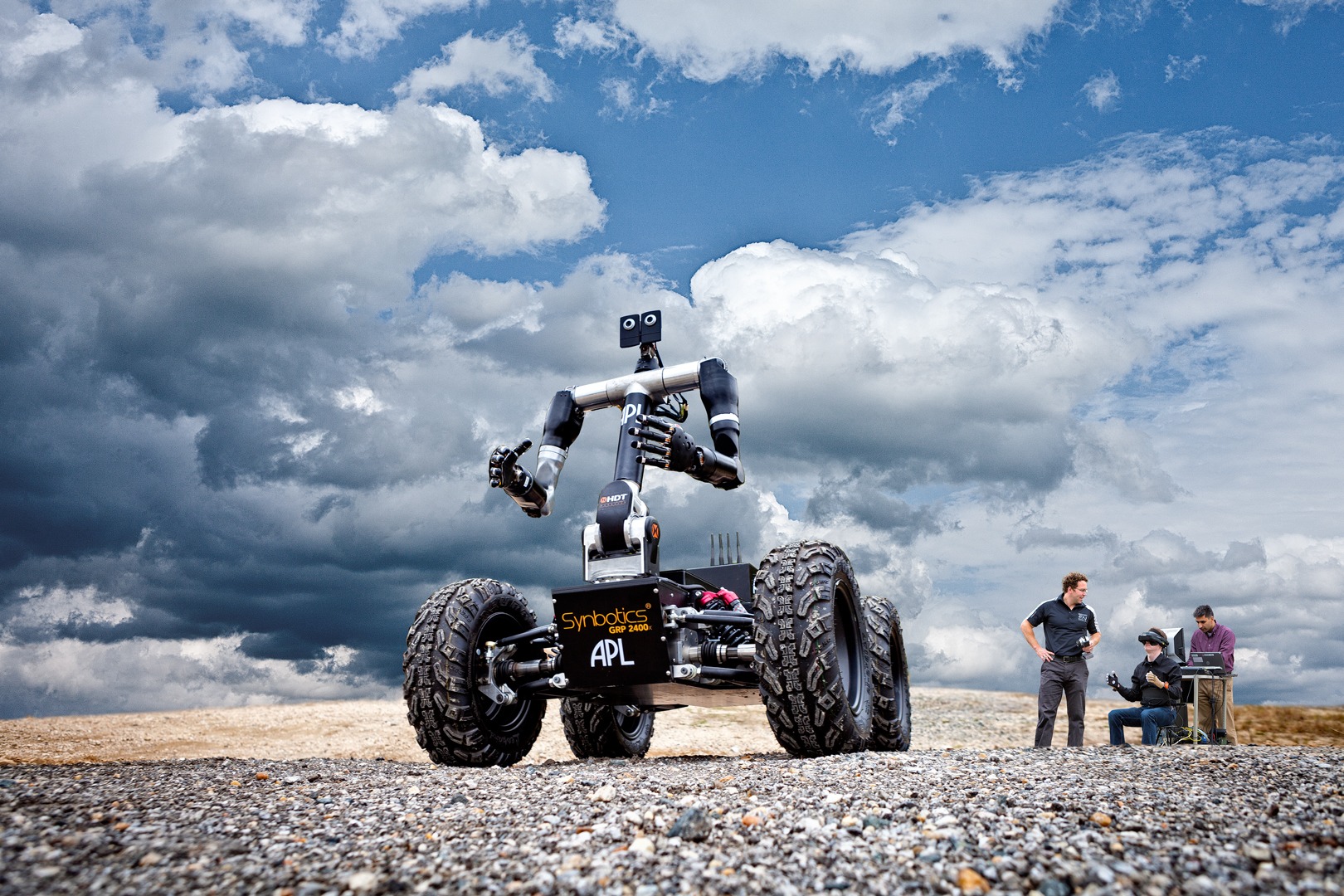Press Release
Johns Hopkins APL Engineer Helps Launch Unique Online Robotics and Autonomous Systems Graduate Program
Johns Hopkins Engineering for Professionals, a collaboration between the Johns Hopkins Applied Physics Laboratory (APL) and Johns Hopkins Whiting School of Engineering (WSE), has launched one of the only fully online Robotics and Autonomous Systems master’s programs in the nation, offered within WSE’s Engineering for Professionals program.
Autonomous robots and systems are becoming more prevalent in society. According to a 2020 Business Wire report, the robotics industry is expected to grow by 13.5% by 2025. Equipping a workforce to tackle the tough challenges associated with creating autonomous robots and systems that can safely interact with humans and other robots is critical.

Credit: Johns Hopkins APL
“We’re looking to develop the next cadre of roboticists who can develop robots to ‘think’ for themselves,” said program co-chair David Silberberg, an artificial intelligence and machine-learning expert at APL who also chairs the Whiting School’s Information Systems Engineering program and serves as research director of the Johns Hopkins Institute for Assured Autonomy. “Hopefully they’ll be inspired by the principles and ethics they learn in the program to build robots that can act responsibly in society.”
In partnership with co-chair Louis Whitcomb, professor of mechanical engineering and chair of the full-time residential Robotics master’s program at the Johns Hopkins University Homewood campus, Silberberg developed a complex and innovative curriculum that focuses on three topics: the technology itself, the human-computer interface and the ethics of autonomous systems. Additionally, Silberberg and Whitcomb integrated coursework in artificial intelligence and machine learning into the program, giving students the opportunity to learn how to design robots and systems that operate on a continuum from human remote control to full autonomy.
The program teaches technologies that enable robots to perceive the environment, plan actions and carry out tasks with varying degrees of autonomy. It also focuses on developing socially aware robots — those that will work well with people — and doing so according to ethics guidelines.
Students can choose from five focus areas to enhance their learning. They will also have the opportunity to work with their academic advisors — for the initial semesters, Silberberg and Whitcomb themselves will advise students — to tailor the program to their specific interests, such as undersea robotics.
In the future, Silberberg and Whitcomb eventually plan to draw on the expertise of APL and the Whiting School to enhance the program with new course offerings. But for now, students can choose from approximately 100 courses to fulfill the 10-course degree requirement.
Enrollment is currently open for the spring 2023 session, which begins Jan. 23, and Silberberg said the program is already receiving a large number of applications.
“The early popularity of the program speaks to the need for this coursework,” Silberberg said. “As word spreads about the existence of the program and what it offers, we anticipate enrollment will continue to increase rapidly.”
APL brings significant expertise in autonomous system research and development to this educational endeavor. The Laboratory develops autonomous robots and systems for a multitude of purposes, including space exploration, defense, medical applications and more. Currently, 15 APL staff members serve as chairs or co-chairs on Engineering for Professionals programs, and an additional five staff members serve as program managers.
“The partnership relationship between APL and the Whiting School makes the Engineering for Professionals program one of the largest and best part-time master’s degree programs in the nation,” said Harry Charles, lead of APL’s Education Center. “Almost 50% of the faculty is composed of APL working professionals, giving students the benefit of both theoretical and practical knowledge.”
The Johns Hopkins Robotics and Autonomous Systems program is part of a suite of Engineering for Professionals offerings covering a full range of engineering and science disciplines.
